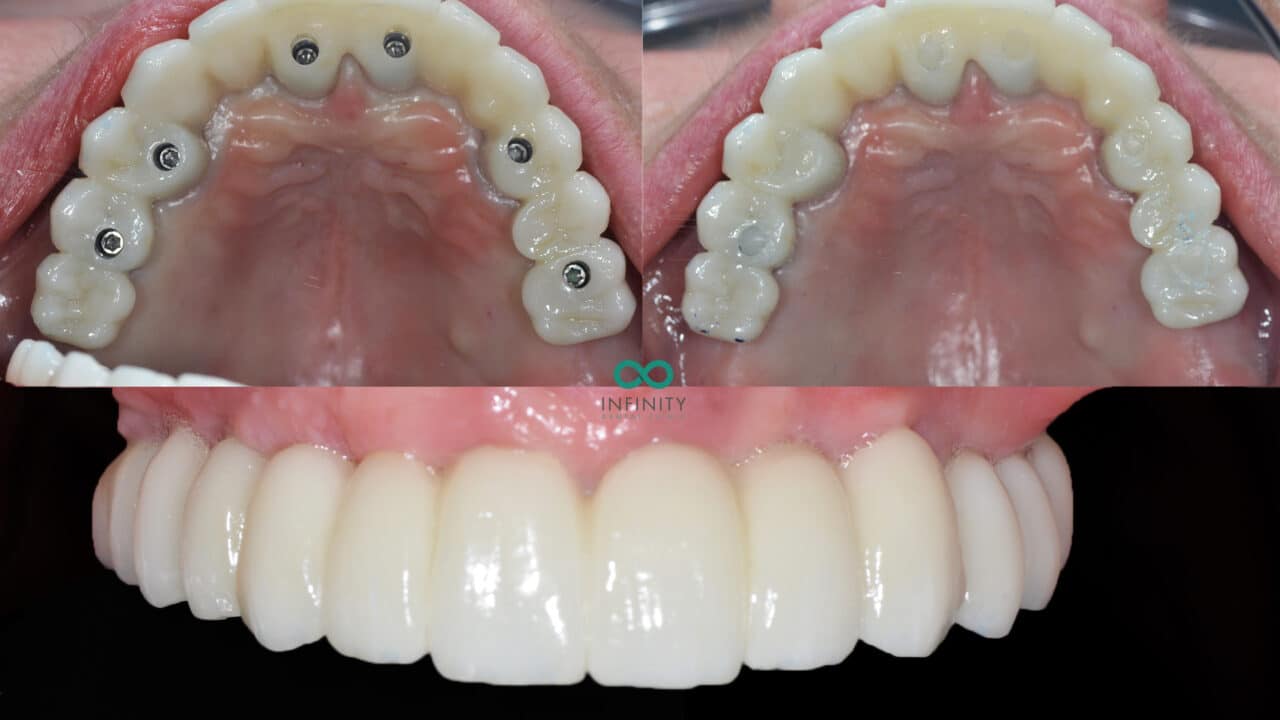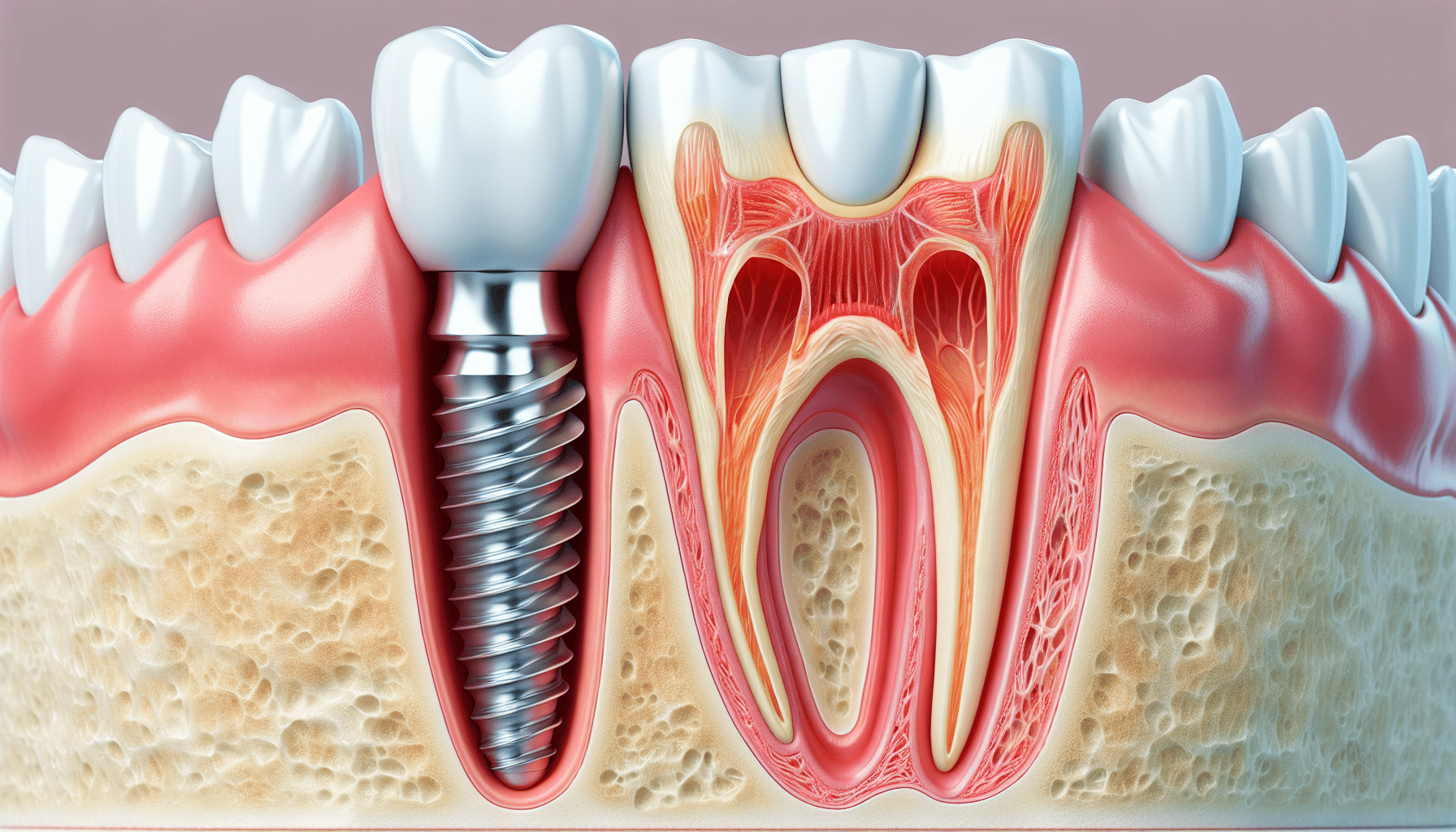Dental Center Hartford OH What Are Dental Implants? Types, Benefits, and More
Dental Center Hartford OH What Are Dental Implants? Types, Benefits, and More
Blog Article
Dental Clinic Alexandria OH Frequently Asked Questions About Dental Implants
Dental implants have emerged as a well-liked selection for people looking for a long-term solution to tooth loss. One important aspect of understanding dental implants includes their effect on adjacent teeth. This is particularly important for ensuring the health and longevity of the entire dental structure.
When a dental implant is placed, it mimics the function of a natural tooth root. By doing so, it helps keep the integrity of the surrounding bone structure. Natural teeth depend on a balanced, interconnected system for assist, and dental implants can contribute positively to that dynamic. The stability supplied by the implant permits for better distribution of chunk forces, which may prevent undue stress on adjacent teeth.
Premier Dental New Albany OH Full Mouth Dental Implants: A Comprehensive Solution
In circumstances where a tooth is missing, the neighboring teeth could shift into the vacant house. This shifting can lead to misalignment and numerous other issues. By inserting a dental implant, the risk of this shifting is reduced, as the implant acts as a placeholder that preserves the natural alignment of surrounding teeth. This preventive impact is essential for long-term oral health and performance.
Another necessary consideration is bone loss. When a tooth is lost, the jawbone in the area can start to deteriorate because of an absence of stimulation. Dental implants help prevent this bone loss by providing the necessary stimulation to the jawbone, very like a natural tooth root would. This preservation of bone not only supports the implant itself but also contributes to the stability of adjacent teeth.
The sort of fabric utilized in dental implants, sometimes titanium, has a singular property of osseointegration, which means it fuses with the bone over time. This integration offers a sturdy foundation for the synthetic tooth while ensuring that the implant doesn’t negatively have an effect on surrounding structures. As the implant integrates, it creates an environment that contributes positively to the health of the adjacent teeth.

Regular dental check-ups play an essential role in monitoring the influence of dental implants on adjacent teeth. Professional assessments may help determine any points that will arise, ensuring immediate therapy and sustaining the health of the entire dental arch. These evaluations might embrace X-rays to verify for bone density and the general condition of the implant and surrounding teeth.
Pediatric Dentist Alexandria OH Affordable Dental Implants: Finding the Best Value
Oral hygiene practices are very important for individuals with dental implants. Proper brushing and flossing habits not only contribute to the longevity of the implant but additionally make positive that adjacent teeth remain wholesome. Food particles and plaque that accumulate around the implant can cause problems, together with peri-implantitis, an inflammatory condition that may affect surrounding teeth and tissues.
The positioning of dental implants can influence the health of adjacent teeth. If an implant is positioned at an angle or not properly aligned, it may result in elevated pressure on neighboring teeth. This misalignment might cause wear and tear on adjacent enamel, potentially resulting in cavities or different dental issues. Therefore, the talent and expertise of the dentist performing the implant procedure are paramount in achieving a profitable consequence.
In some situations, additional procedures may be essential to arrange the encompassing area for an implant. Bone grafting or sinus lifts can help create a greater surroundings for the implant. While these procedures are aimed at enhancing the site for the implant, in addition they serve to protect the health of adjacent teeth by creating a extra stable basis.
Dentist Office Johnstown OH The Advantages, Risks, and Insurance for Dental Implants

As dental technology evolves, developments in implant methods lead to higher outcomes. Improved imaging techniques and computer-aided design enable for more exact placements that reduce risk to adjacent teeth. With these advancements, the chance of complications that might arise from improperly positioned implants diminishes significantly.
Post-operative care additionally plays a important position in guaranteeing that adjacent teeth remain unaffected. Patients should adhere to the dentist's instructions concerning food regimen, oral hygiene, and follow-up visits. Neglecting these pointers might result in complications that impression not only the implant but additionally the neighboring teeth.
Family Dental Clinic Pataskala OH Frequently Asked Questions About Dental Implants
In conclusion, dental implants, when positioned appropriately and cared for correctly, have the potential to reinforce the health of adjacent teeth somewhat than detract from it. They preserve alignment, stimulate bone development, and supply a safe basis that helps the whole dental structure. Understanding how dental implants have an result on adjacent teeth emphasizes their significance as a long-term tooth replacement answer. With continuous advancements in know-how and techniques, the integration of dental implants into restorative dentistry is becoming increasingly profitable, guaranteeing wholesome and useful smiles for years to return.

- Dental implants prevent adjacent teeth from shifting into the hole created by a missing tooth, helping to take care of correct alignment in the mouth.
- The rebuilding of the jawbone through an implant can stimulate surrounding teeth and maintain them wholesome by offering necessary bone density which may in any other case diminish.
- Adjacent teeth profit from the stabilization that dental implants provide, decreasing the danger of wear and tear from misalignment during chewing.
- Implants can protect adjacent teeth by appearing as a framework, which might distribute chunk forces evenly throughout the dental arch instead of putting undue stress on neighboring teeth.
- When placed correctly, dental implants reduce the danger of gum disease which might have an result on adjacent teeth by sustaining a clear and healthy gum line.
- The presence of an implant can facilitate an improved oral hygiene routine, as it eliminates the need for bridgework that would lure meals particles round adjacent teeth.
- Regular dental check-ups can reveal how properly the implant integrates with surrounding constructions, guaranteeing ongoing health for adjacent teeth.
- Implants can prevent the natural strategy of bone resorption that happens after tooth loss, positively impacting the soundness and longevity of adjacent teeth.
- The use of dental implants would possibly cut back the need for extra invasive procedures sooner or later, offering a long-term resolution that maintains the structure of the complete dental arch.
- Successful integration of an implant into the dental arch enhances total oral operate, usually leading to improved confidence and oral health for adjacent teeth.undefinedHow do dental implants affect adjacent teeth?
What influence do dental implants have on the alignment of adjacent teeth?
Dental implants usually prevent the shifting of adjacent teeth, serving to to take care of correct alignment. This stability can scale back the risk of developing bite points over time.
Can dental implants click site trigger harm to close by teeth?
When placed correctly by a qualified professional, dental implants mustn't injury adjacent teeth - Mono Dental Implants Johnstown OH. However, improper placement or insufficient planning could result in complications
Pediatric Dentist Galena OH Full Mouth Dental Implants: An In-Depth Overview
Do dental implants require any special care relating to adjacent teeth?
Maintaining good oral hygiene is important. Surrounding teeth ought to be brushed and flossed frequently, and routine dental check-ups will help be sure that both the implants and adjacent teeth stay wholesome.

Will view dental implants impression the health of my surrounding teeth?
Dental implants can enhance the health of surrounding teeth by distributing bite forces evenly, decreasing put on and tear. Additionally, they'll prevent bone loss within the jaw, which can affect adjacent teeth.
Dental Care Sunbury OH What Are Dental Implants? Types, Benefits, and More
Are there any Learn More long-term effects of dental implants on close by teeth?
Long-term, dental implants might help preserve the health of adjacent teeth by stopping shifting and potential gum points, finally contributing to better oral health total. - Johnstown Dental Condit OH
Can gum problems arise round adjacent teeth after getting implants?
If proper dental care is uncared for, gum issues may develop round both the implants and adjacent teeth. Following post-operative care directions is important to minimize these risks.
Dental Clinic Hartford OH Permanent Dental Implants
How do dental implants compare to bridges when it comes to adjacent teeth?
Dental implants are usually helpful as they don’t require alteration of adjacent teeth, not like bridges, which necessitate reshaping of nearby teeth for help. (Dental Care Galena OH)
Can I still get cavities in adjacent teeth if I have dental implants?
Yes, adjacent teeth can still develop cavities if not properly cared for. Dental implants themselves cannot get cavities, but they require vigilant hygiene practices to protect surrounding natural teeth.
What is the success rate of dental implants in relation to surrounding teeth?
The success rate of dental implants is high, but it largely depends on the quality of the procedure and ongoing care. Well-maintained implants often result in higher outcomes for adjacent teeth as nicely.